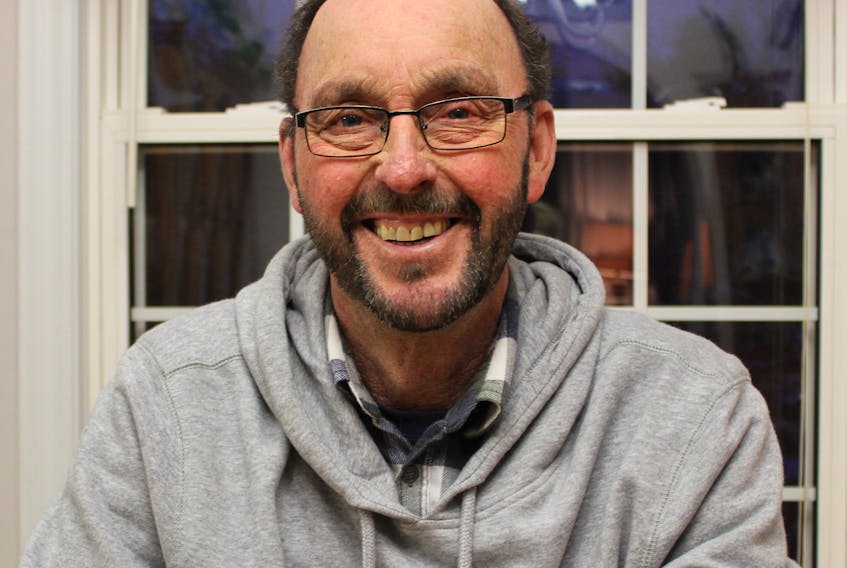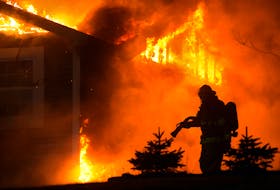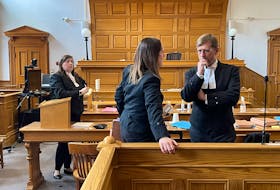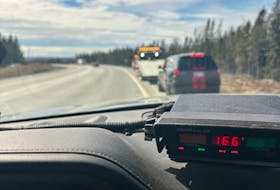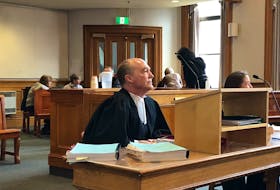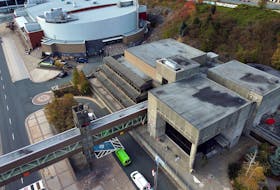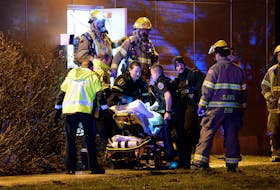Terry Travers spent some time worrying how he was going to get to his chemotherapy treatment this week.
After he made it to Corner Brook, the worry became how he was going to get back home to Lark Harbour as planned.
Travers was among the hundreds of people stranded in the towns of Lark Harbour and York Harbour when a washed-out highway cut off the outer Bay of Islands communities last weekend.
Related stories:
Clean-up efforts continue in several Western Newfoundland communities days following weekend thaw
Revisiting Western Newfoundland areas affected by wild weekend weather
The 70-year-old who has lived in Lark Harbour all of his life has been battling cancer since 2012 and travels to Corner Brook for chemotherapy every second Monday or Tuesday.
That regular trip became problematic this past week when heavy rains and snowmelt washed out the highway at Rattler’s Brook on Route 450.
Suddenly, the usually 45-minute drive to Corner Brook seemed like an impossible feat.
Before he had to go looking himself for a way to get to the city, a town official who knew he was battling cancer contacted him and asked him if he needed to go get treatment.
The provincial government began offering helicopter transportation to residents Tuesday, but weather conditions prevented that from commencing in the morning. He could have gone in the afternoon, but that was a problem for Travers.
He needed to have blood testing done in the morning before getting the treatment later in the day. He was also supposed to have a videoconference with his oncologist for a report on a CT scan he recently had done.
“I just said, well, I guess I’ll have to stay home,” he said in an interview Thursday.
The update with the doctor was done by phone, but Travers and his wife Ruth would rather have been at the hospital for it, in case they had follow-up questions a nurse could answer for them.
“The result was OK, but it was a worry before we did that by phone,” said Ruth.
Travers finally made it out by chopper and got his chemotherapy treatment Wednesday.
Before leaving Corner Brook, though, he got a call from the town official who was co-ordinating the helicopter flights. She told him there was snow on the way and there would be only one more flight back down the bay.
Travers and his wife were told the chopper would wait for them, but only as long as the weather didn’t worsen first.
En route to the chopper, they got another call, wondering how close they were because the helicopter needed to leave soon. They made it just in time and were fortunate to get home the same day they had left.
“I really appreciated him waiting for me with the snow coming,” said Travers. “It’s not very nice when you’re cut off from an area, but you couldn’t get it any better, the way they handled it.”
He’s glad he never had to miss getting the treatment he needs to keep fighting his disease.
“I wasn’t worried but the time was up for two weeks and it was time to get it done,” he said. “It’s not something you want to be putting off.”
The highway was finally opened back up to vehicular traffic late Wednesday night.
Travers is one of the many folks thankful for that.
“It was a relief for a lot of people,” he said. “Some people had medical appointments and there were people who couldn’t get back and forth to work. It makes a big difference not being able to do those things.”

